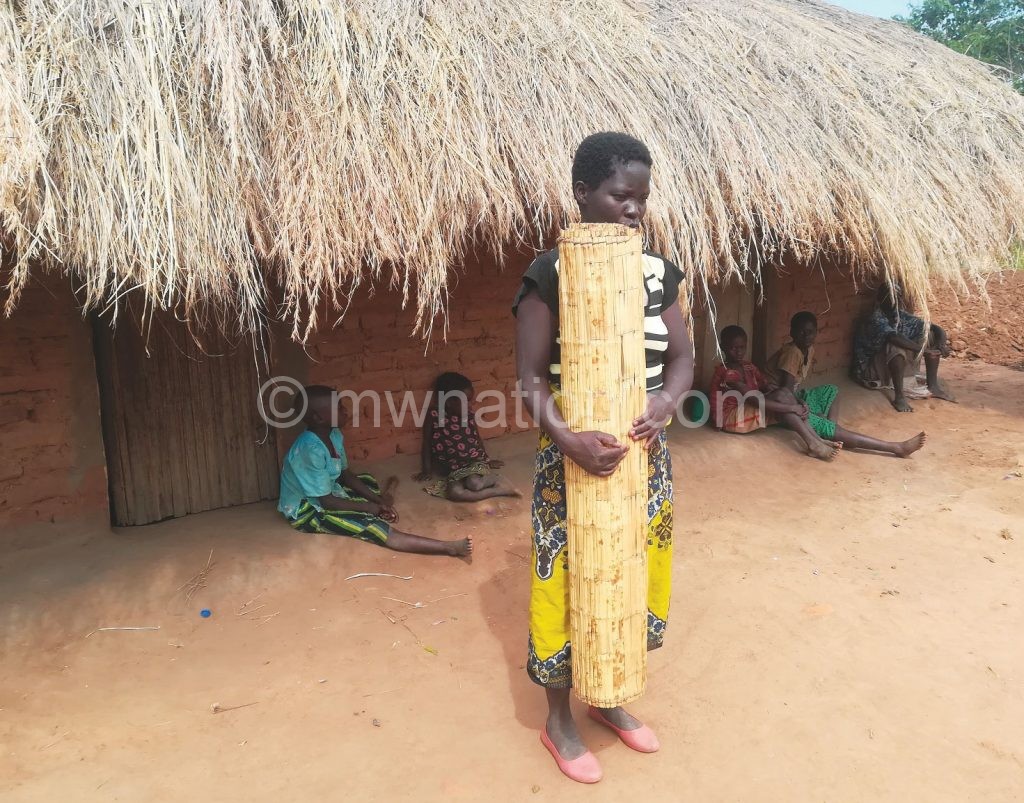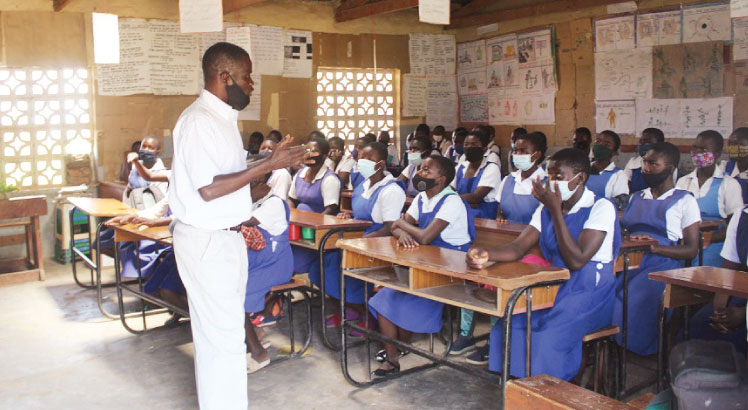Which way? Federal, Rotational or Proportional?
Harriet Nyondo of Mwenechendo under Traditional Authority (T/A) Mwabulambia in Chitipa, who on October 21 2016 gave birth to her sixth child Webster on her way to Chambo Health Centre, which is 27 kilometres away, still does not have a hospital nearby.
In Zomba, families of four young souls—Tisunge Francisco, Jennifer Bonongwe, Gift Mwanyada and Madalitso Nayuma—who died after a wall of their classroom block had just collapsed on them in June 2018, are still wondering why that happened.

These parents were part of desperate communities that built the block to have their children learn under a roof in view of government neglect—a sign that all they needed was a better school block.
Yet in Mzimba, in Mkumbanjala area, people, including teachers and learners in schools, have to draw water from dirty wells, exposing themselves to water-borne diseases. All they want are water facilities.
While the citizenry grapple with all these challenges, politicians are busy suggesting what they believe are better governance systems, mostly stemming out of the feeling of nepotism.
Some think presidential powers have to be enjoyed by people from all regions, suggesting rotational presidency; others feel resources are not equally distributed and suggest federalism; while yet others throw in the parliamentary system, using proportional representation.
Federalism
For starters, federalism, as American Political Scientist Daniel Elazar defined in Exploring Federalism (1987), is simply a constitutional mechanism for dividing power between different levels of government.

Has been through hell: Harriet
The essence is for federated units to enjoy substantial, constitutionally guaranteed autonomy over certain policy areas while sharing power in accordance with agreed rules over other areas.
As such, federalism combines partial self-government with partial shared government.
A proponent of the system in Malawi, which Parliament has previously rejected, parliamentarian Yeremiah Chihana of Mzimba North argues that the system is in the interest of equitable distribution of resources and development.
Chihana thinks it is the solution to the challenges brought about by quota system in the education sector, coupled with the elasticity of Malawi politics, and to ensure equal participation in political decisions.
Says Chihana: “This House [Parliament] is satisfied that Malawi has now matured to change its system of government. To that end, this House resolves that all efforts and legal framework should be put in place towards the adoption of a federal system of government within a specified period.”
This resonates with the US federal system, where people, in conjunction with civil society, look at what is needed in their communities and submit the same through public hearings to local governments for action.
The reasoning, if it liaises with Elazar’s understanding, is to improve governance, accountability and public participation, and to promote development policies and services that are tailored to local needs such as those in Chitipa, Zomba and Mzimba.
Under States [like regions in Malawi], they would plan and pay for most roads, run public schools, provide water, organise police, fire services, emergency medical service, building and zoning departments as well as streets and sanitation departments.
US governance and international relations expert Akram Elias indicates that the citizenry, with civil society, who have experts and academics, work in unison and discuss problems and solutions which are presented to government to come up with a policy.
“If I leave in Arizona, and I find something wrong, like lacking public services or injustices, corruption or abuse of power, I don’t ask where the government of Arizona is. I am trained to ask myself what I am going to do to change the situation.”
“Civil society takes the lead— education, security or economic development policy will not originate from government agency, but from a coalition of civil society organisations (CSOs) that have partnered with government to extract the policy. Public hearings are set up to discuss the policies,” he says.
Rotational
However, Mzimba Ngoni chief, Inkosi Ya Makhosi M’mbelwa V, suggests Malawi should adopt rotational presidency to ensure equitable distribution of political powers across the three regions— North, Centre and South.
The chief believes the system would ensure geo-political balance and end allegations of nepotism.
A better example of rotational presidency is Switzerland, where the government, also called Federal Council, is the executive power. It comprises seven federal councillors from several Swiss political parties, who share the duties of a Head of State.
British journalist Thomas Stephens, writing on ‘Switzerland’s 19 living ex-presidents: a political record (2019)’, indicates that the Swiss president is neither the head of State nor the head of government.
“The seven-person cabinet, also known as the federal council, is considered a collective head of state and government. The president might be primus inter pares – the first among equals – but he or she doesn’t have any greater power than the rest of the cabinet.
“In a nutshell, get elected to Cabinet by parliament and wait your turn. This will come when all the Cabinet ministers who were elected before you have served as president during your time in the Cabinet—a maximum of six years,” writes Stephens.
The World Economic Forum (WEF) says three instruments for this direct democracy, are all types of referendum-mandatory, popular initiative and optional.
First, a vote must be held on any amendment to the Constitution, resulting in a mandatory referendum and double majority, meaning the consent of a majority of the people and of the cantons is required to amend the country’s Constitution.
“Citizens can launch a popular initiative to demand a change to the Constitution,” says the WEF.
In Malaysia, according to Article 32 of that country’s Constitution, nine hereditary sultans from the Malay States, forming the Conference of Rulers, elect from among themselves a Yang di-Pertuan Agong for a term of five years. Then it rotates.
In Nigeria, power is shared between the North and the South, on a rotational basis. There is no legal document requiring that presidential candidates should come from any particular geographical region or religious background.
M’mbelwa opines that bringing a rotational system in Malawi will promote peace and stability while further harmonising the political divide.
He says: “When you look at Nigeria, people there stopped fighting after adopting the rotational system. In Malawi, when you look at the population of the North and Centre, you will find that it is small, and so you find that a Northerner or someone from the Central Region cannot be President.
“So, the only way to be balanced is for the rotational system because it ensures that whichever party is there, will be forced to follow the rule. You find that even the distribution of things such as development will even be fair.”
The CCAP Synod of Livingstonia, through general secretary Levi Nyondo, agrees with this thinking, saying, they already agreed to start pushing for this system.
Argues Nyondo: “You see, everyone in the country must have an opportunity to rule, but since 1994, it has been people from just one region.”
In his 2006 constitutional review presentation titled ‘Towards a More Manageable Constitution’, President Peter Mutharika, actually, said the idea of rotational presidency is not necessarily outlandish, but also wondered whether the system would exacerbate regionalism or not.
He said: “Both Switzerland and Malaysia have rotating presidencies. In the case of Malaysia, though, the presidency is a ceremonial position. A constitutional formula could be found under which an executive presidency would rotate.
“Our three regions are certainly not a geographical imperative. They were drawn for the convenience of the colonial administrators and to some extent the missionaries.”
Propositional representation
Then, Mutharika already knew that the rotational system may not be easily accepted. So he suggested proportional representation and abolition of regions, more of federalism as ways of addressing concerns about regional marginalisation.
He said: “While the initial decision to abolish regions led to war, Nigeria is now a much more unified and stable country. Similarly, South Africa’s decision to break the original four provinces into nine has created a very stable political environment.”
Proportional representation comes in many forms, with the first, Closed Party List system being where the electorate votes for their preferred political party and that party then gets a share of seats in Parliament in direct proportion to the number of votes it got in the election.
South Africa uses this system, and according to the Electoral Commission of South Africa, each party then decides on members to fill the seats it has won.
The second is the Open Party List system in which the electorate votes for their preferred candidate and their preferred political party as it combines a plurality or majority system with proportionality.
In this system, writes Lydia Miljan and Geoffrey Alchin, the electorate votes twice on the same ballot. The first vote—the party vote—is to select the political party, while the second vote—the electorate vote—is the plurality or majority vote by which voters choose the candidate they wish to fill the seat.
So what?
In 2014, Professor Danwood Chirwa argued that federalism is just too complex a system for a small and poor country like Malawi, which has high illiteracy levels and whose political leadership is largely ignorant of its constitutional roles.
Senior Chief Makwangwala of Ntcheu also argues that rotational presidency will only deepen divisions, suggesting that the 50 percent+1 system of electing the President remains the best solution for Malawi’s political challenges.
On his part, Chancellor College-based political analyst Ernest Thindwa says the solution to deal with politics of discrimination, regionalism or favouritism is not rotational presidency.
He says: “Therefore, the starting point should be the 50 percent +1, because it will compel presidential candidates and incumbents to ensure they reach out to all corners of the country, and essentially that would deal with politics of regionalism and discrimination.”
While nullifying the Presidential election of May 21 2019, the Constitutional Court indicated that Malawi already has the 50 percent+1 in its Constitution, and gave directions to Parliament. From Federal to rotational, then proportional and the 50 percent +1, the question remains, will the citizenry get what they really want? Will they get the health facilities, water, schools, or the Central Government will continue dictating a black cheque?






Great content! Super high-quality! Keep it up! 🙂